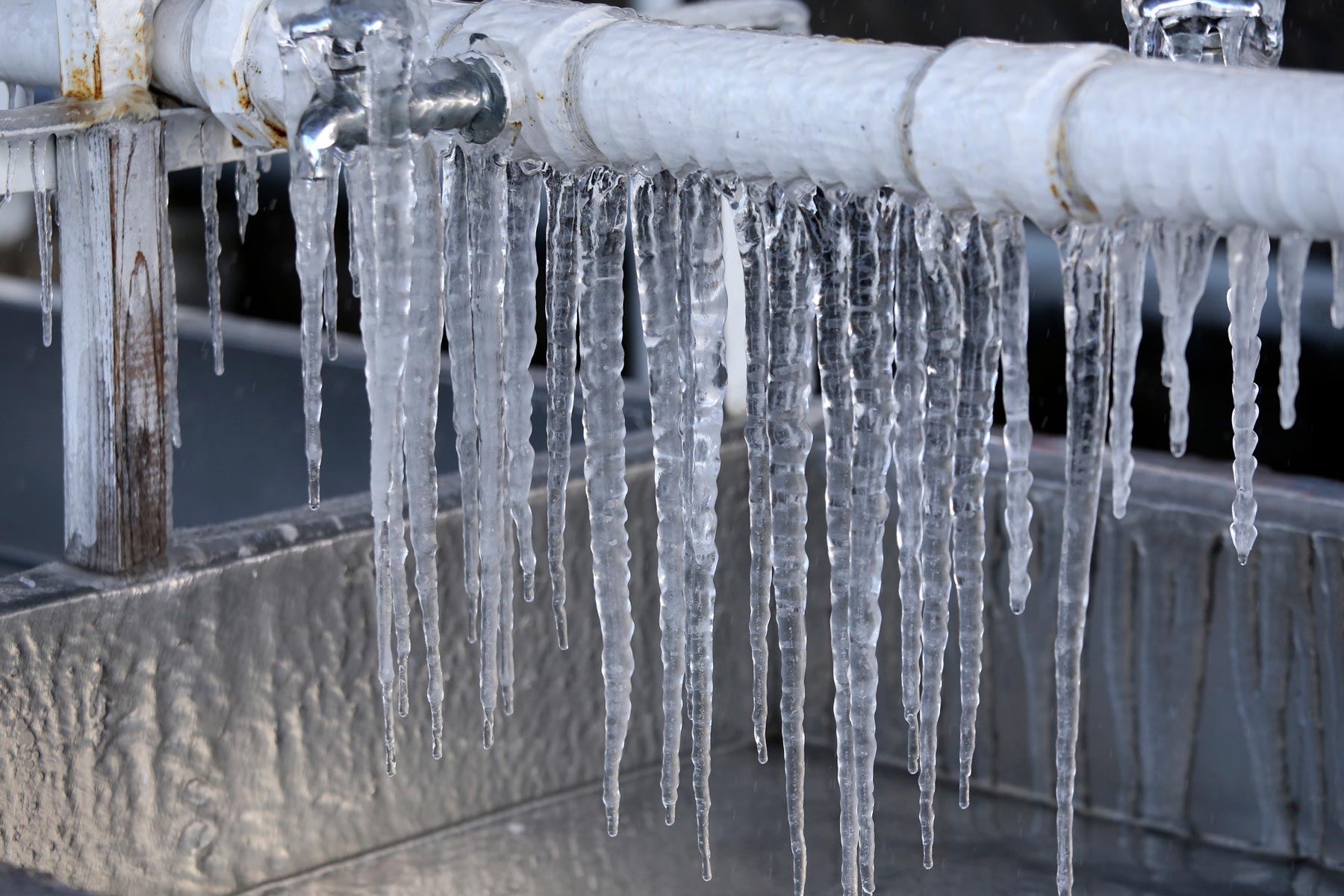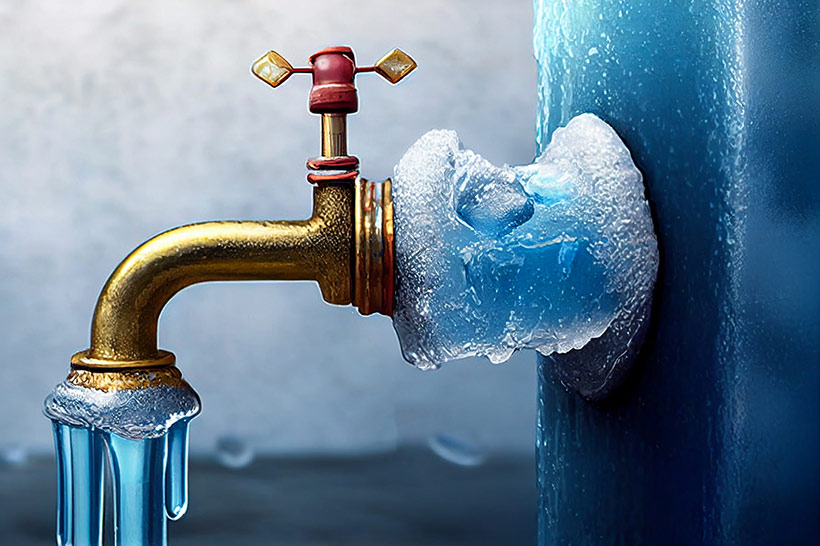Tips to Safeguard Pipes from Freezing: Specialist Advice
Tips to Safeguard Pipes from Freezing: Specialist Advice
Blog Article
The article down the page in relation to How to Prevent Your Pipes From Freezing is relatively compelling. Don't skip it.

Cold weather can ruin your pipes, specifically by freezing pipelines. Below's how to stop it from taking place and what to do if it does.
Intro
As temperatures decrease, the danger of frozen pipes increases, potentially resulting in costly repairs and water damages. Recognizing exactly how to prevent frozen pipelines is vital for house owners in cold environments.
Comprehending Icy Pipes
What causes pipes to freeze?
Pipelines ice up when subjected to temperatures listed below 32 ° F (0 ° C) for expanded periods. As water inside the pipelines freezes, it broadens, putting pressure on the pipe wall surfaces and potentially triggering them to break.
Risks and damages
Icy pipelines can result in water disruptions, residential property damage, and costly repairs. Ruptured pipelines can flooding homes and trigger extensive structural damages.
Indicators of Frozen Pipeline
Determining frozen pipes early can avoid them from rupturing.
Exactly how to determine icy pipelines
Try to find reduced water circulation from faucets, unusual odors or sounds from pipelines, and visible frost on exposed pipes.
Prevention Tips
Shielding prone pipes
Wrap pipelines in insulation sleeves or utilize heat tape to protect them from freezing temperature levels. Focus on pipelines in unheated or outside areas of the home.
Home heating techniques
Maintain interior rooms appropriately heated up, specifically areas with pipes. Open cupboard doors to allow warm air to flow around pipes under sinks.
Securing Outdoor Plumbing
Yard tubes and outside taps
Separate and drain garden pipes prior to winter. Install frost-proof spigots or cover outside taps with shielded caps.
What to Do If Your Pipelines Freeze
Immediate activities to take
If you suspect frozen pipes, keep faucets open to ease stress as the ice thaws. Utilize a hairdryer or towels soaked in hot water to thaw pipes gradually.
Long-Term Solutions
Architectural changes
Take into consideration rerouting pipelines far from exterior walls or unheated locations. Include additional insulation to attics, cellars, and crawl spaces.
Updating insulation
Invest in top quality insulation for pipelines, attic rooms, and walls. Correct insulation assists maintain regular temperatures and reduces the threat of frozen pipelines.
Conclusion
Protecting against icy pipelines calls for positive steps and fast responses. By comprehending the reasons, signs, and preventive measures, home owners can protect their pipes throughout winter.
Helpful Tips to Prevent Frozen Pipes this Winter
UNDERSTANDING THE BASICS: WHY PIPES FREEZE AND WHY IT’S A PROBLEM
Water freezing inside pipes is common during the winter months, but understanding why pipes freeze, and the potential problems it can cause is crucial in preventing such incidents. This section will delve into the basics of why pipes freeze and the associated problems that may arise.
THE SCIENCE BEHIND FROZEN PIPES
When water reaches freezing temperatures, it undergoes a physical transformation and solidifies into ice. This expansion of water as it freezes is the primary reason pipes can burst. As the water inside the pipe freezes, it expands, creating immense pressure on the walls. If the pressure becomes too great, the pipe can crack or rupture, leading to leaks and water damage.
FACTORS THAT CONTRIBUTE TO PIPE FREEZING
Low Temperatures: Extremely cold weather, especially below freezing, increases the risk of pipes freezing. Uninsulated or Poorly Insulated Pipes: Pipes located in unheated areas, such as basements, crawl spaces, or attics, are more prone to freezing. Insufficient insulation or lack of insulation altogether exacerbates the problem. Exterior Wall Exposure: Pipes running along exterior walls are susceptible to freezing as they encounter colder temperatures outside. Lack of Heating or Temperature Regulation: Inadequate heating or inconsistent temperature control in your home can contribute to frozen pipes. PROBLEMS CAUSED BY FROZEN PIPES
- Pipe Bursting: As mentioned earlier, the expansion of water as it freezes can cause pipes to burst, resulting in significant water damage.
- Water Damage: When pipes burst, it can lead to flooding and water damage to your property, including walls, ceilings, flooring, and personal belongings.
- Structural Damage: Prolonged exposure to water from burst pipes can compromise the structural integrity of your home, leading to costly repairs.
- Mold and Mildew Growth: Excess moisture from water damage can create a favorable environment for mold and mildew growth, posing health risks to occupants.
- Disrupted Water Supply: Frozen pipes can also result in a complete or partial loss of water supply until the issue is resolved.
WHY CERTAIN PIPES ARE MORE PRONE TO FREEZING
- Location: Pipes located in unheated or poorly insulated areas, such as basements, crawl spaces, attics, or exterior walls, are at higher risk of freezing.
- Exterior Pipes: Outdoor pipes, such as those used for irrigation or exposed plumbing, are particularly vulnerable to freezing as they are directly exposed to the elements.
- Supply Lines: Pipes that carry water from the main water supply into your home, including the main water line, are critical to protect as freezing in these lines can affect your entire plumbing system.
- Underground Pipes: Pipes buried underground, such as those connected to sprinkler systems or outdoor faucets, can be susceptible to freezing if not properly insulated.
https://busybusy.com/blog/helpful-tips-to-prevent-frozen-pipes-this-winter/

I have been very interested in Prevent Frozen Pipes and I hope you enjoyed reading my piece. Appreciated our review? Please quickly share it. Let others find it. I praise you for your time. Don't hesitate to check up our site back soon.
Request Estimate Report this page